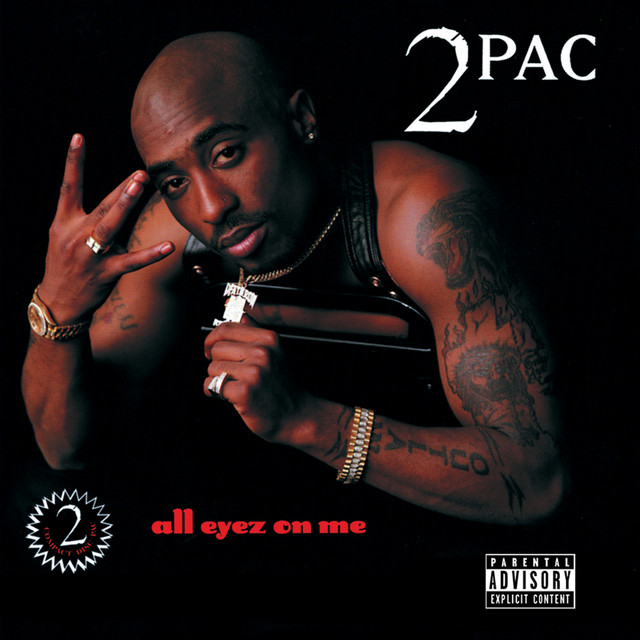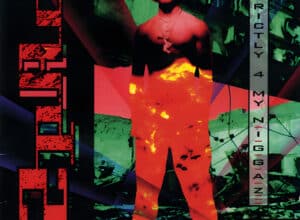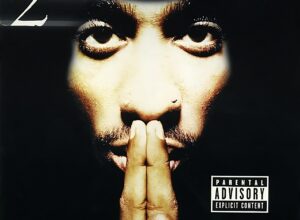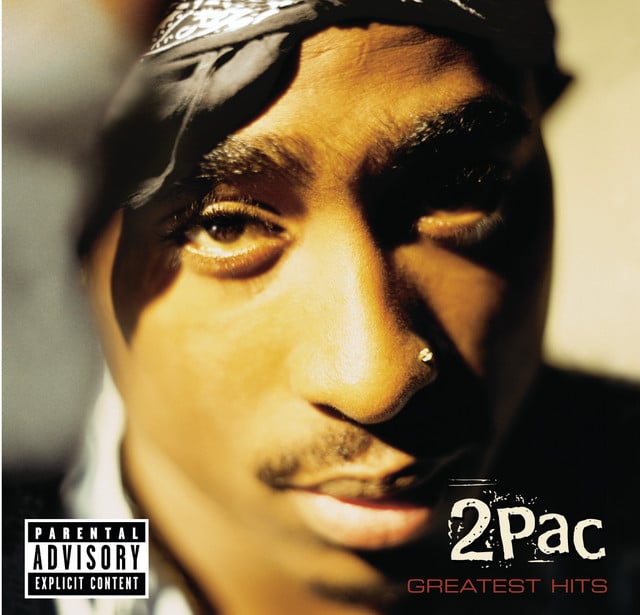Released: 1996 • Features: “Rappin 4-Tay”
“Only God Can Judge Me,” a profound track by 2Pac featuring Rappin’ 4-Tay, navigates through the street-savvy introspection of living on the edge, underscored by the harsh realities that faced many African American communities in the 90s. This song stands as a declaration against judgment from society, emphasizing the belief that only a higher power can truly judge one’s actions and intents. It’s a slice of 2Pac’s soul, mixed with the stark narratives of street life, loyalty, and the quest for redemption amidst a world of chaos.
The first verse hits hard with 2Pac’s reflection on betrayal and the paranoia stemming from his surroundings, including those once considered close. Terms like “stabbed in the back” and “dirty rats” aren’t just figures of speech but are deep-seated expressions of betrayal by his inner circle. The vivid imagery of battling inner demons, induced by the paranoia from weed (“paranoid from the weed”) and struggling with visions of death and despair, reflects the constant survival mode 2Pac found himself in. When he raps about “fantasies of my family, in a hearse,” it’s not just a fear of death but the agony of potentially leaving his loved ones behind in a cycle of violence and poverty.
In the chorus, “Only God can judge me,” is both a mantra and a rebuke to those quick to pass judgment without walking in his shoes. The repetition of this line throughout the song is a stark reminder of 2Pac’s defiance against societal judgment, firmly believing that ultimate judgment lies with a higher power, not with those who criticize from the sidelines.
The second verse dives deeper into 2Pac’s struggle for survival amidst a hail of bullets and the perceived betrayal by the healthcare system (“somethings evil in my IV”). The mention of “nightmares, homicidal fantasies” reflects the psychological toll of living under constant threat, translating his real-life experiences into the music. “I’d rather die like a man, than live like a coward” captures the ethos of standing one’s ground in the face of adversity, rejecting the notion of living in fear. The critique of systemic issues is pronounced when he touches on the lack of justice and equality, particularly for Black males in America, driving home the desperation and ‘trapped’ feeling many felt.
Rappin’ 4-Tay’s verse adds another layer to the song, speaking to the experience of those who’ve felt misunderstood and stereotyped because of their background. The reference to being judged in the “court of law” and the systemic injustices faced showcases a shared sentiment between him and 2Pac about the struggles of being Black in America. He mentions the double-edged sword of success and the envy and betrayal that often follows, along with the love for their direct community (the Bay) and the need to stay real amidst it all.
Throughout, “Only God Can Judge Me” serves as a powerful testament to resilience in the face of adversity. 2Pac and Rappin’ 4-Tay use their lyrical prowess to paint a vivid picture of their lived realities, wrestling with societal judgment, systemic issues, and the personal battles that come with fame. The track isn’t just a song; it’s a narrative, encompassing the complexities of life in areas ridden with violence, the fight for dignity, and the quest for peace in a world that often seems unjust. It’s a bold assertion of self, calling for understanding rather than judgment, and echoes the sentiments of many who feel their voices are marginalized.








